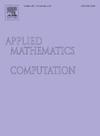论搭便车者之间的公平与合作
IF 3.4
2区 数学
Q1 MATHEMATICS, APPLIED
引用次数: 0
摘要
我们考虑了点对点(P2P)系统中的搭便车问题,在这种系统中,代理人享受群体的努力而不贡献他们的份额。本文提出了一种基于罗宾汉指数的非合作博弈——搭便车博弈。结果表明,FRG具有较强的结构性能。首先,做出非零贡献是任何玩家的主导策略。其次,只要至少有一名玩家做出了积极贡献,他就会做出积极贡献。第三,FRG承认一个独特的纳什均衡,每个玩家贡献最大,消除了搭便车。第四,均衡结果按比例公平,确保各主体均衡分配。最后,FRG通过将公平性直接嵌入到收益结构中,从而保证了玩家的充分参与,这与传统的公共产品游戏不同,后者通常只产生零贡献或部分贡献。本文章由计算机程序翻译,如有差异,请以英文原文为准。
On the fairness and cooperation among free-riders
We consider the free-rider problem in peer-to-peer (P2P) systems, where agents enjoy the group effort without contributing their share. We introduce the Free-Rider Game (FRG), a non-cooperative game incorporating a fairness-aware profit allocation rule based on the Robin Hood index. We show that FRG admits strong structural properties. First, making a non-zero contribution is a dominant strategy for any player. Second, a player contributes positively whenever at least one other player does so. Third, FRG admits a unique Nash equilibrium in which each player contributes the fullest, eliminating free riding. Fourth, equilibrium outcomes are proportionally fair, ensuring balanced allocation across agents. Finally, FRG guarantees full participation by embedding fairness directly into the payoff structure, differentiating it from classical public goods games, which often yield zero or partial contributions.
求助全文
通过发布文献求助,成功后即可免费获取论文全文。
去求助
来源期刊
CiteScore
7.90
自引率
10.00%
发文量
755
审稿时长
36 days
期刊介绍:
Applied Mathematics and Computation addresses work at the interface between applied mathematics, numerical computation, and applications of systems – oriented ideas to the physical, biological, social, and behavioral sciences, and emphasizes papers of a computational nature focusing on new algorithms, their analysis and numerical results.
In addition to presenting research papers, Applied Mathematics and Computation publishes review articles and single–topics issues.

 求助内容:
求助内容: 应助结果提醒方式:
应助结果提醒方式:


